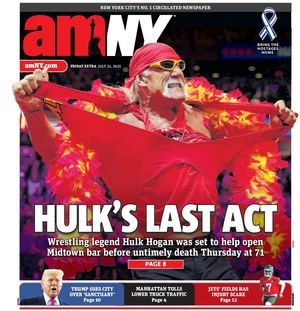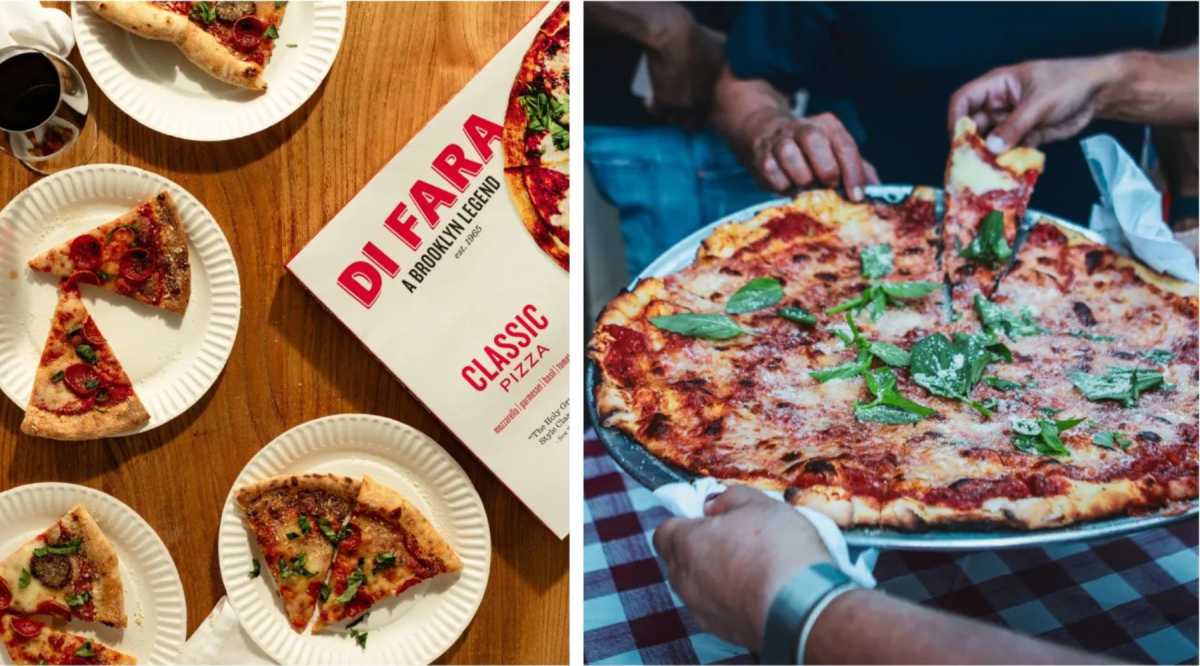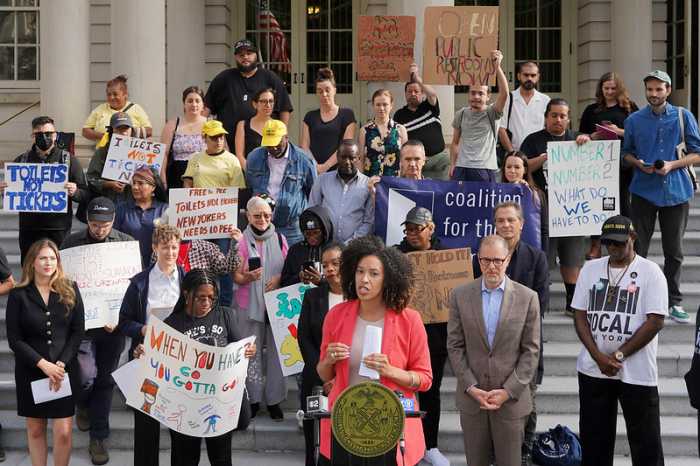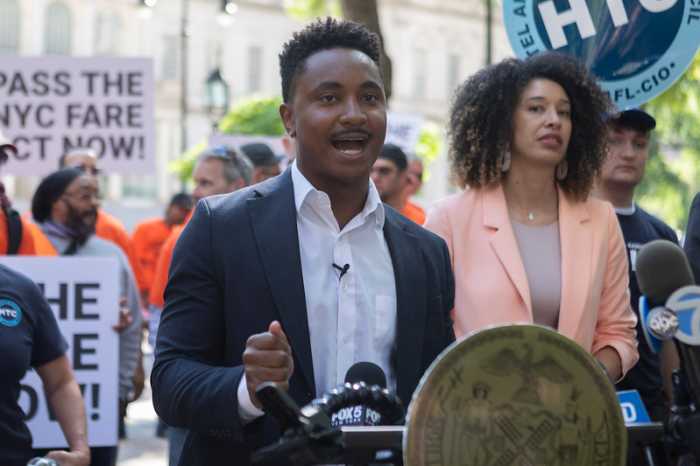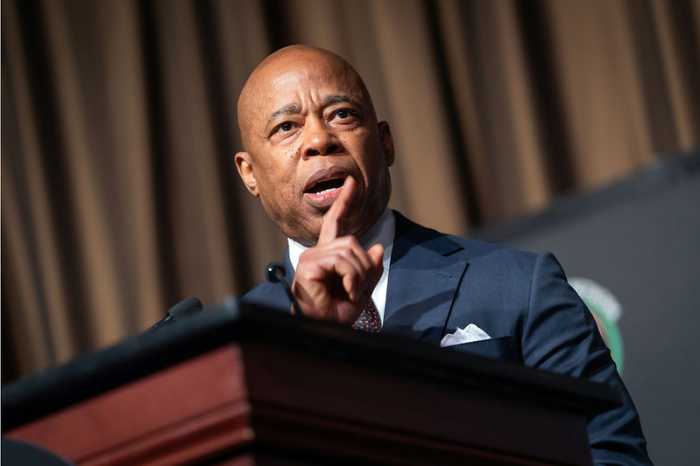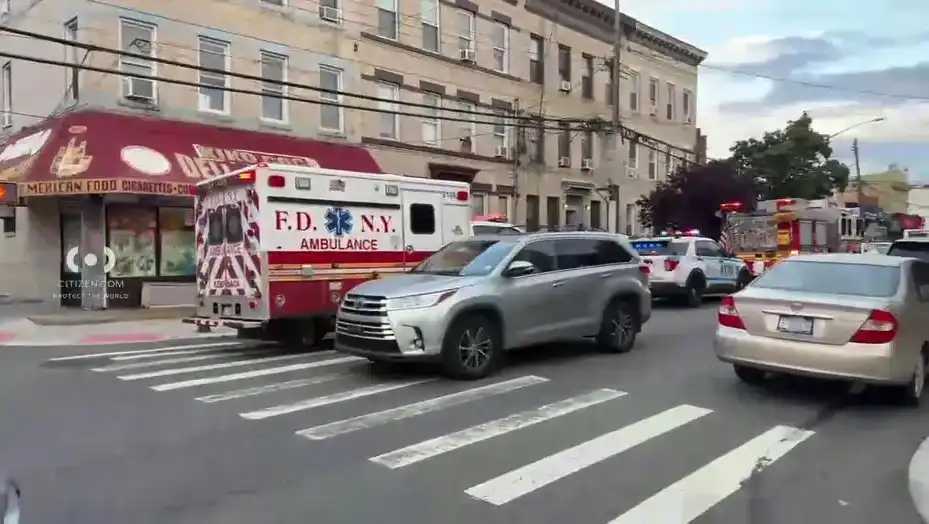Grocery delivery service app Instacart is leading a campaign to derail a City Council bill that would expand minimum pay protections to grocery delivery workers, threatening it may sue if Mayor Eric Adams does not veto the measure.
In a July 22 letter sent to Mayor Adams, Instacart Chief Corporate Affairs Officer Dani Dudeck claimed the bill, known as Intro. 1135-A,
If enacted, the company said it would have “no choice but to pursue legal action against the City of New York.”
The legislation, passed by the Council on July 14 in a 36-5 vote, would require third-party grocery delivery platforms to pay workers a minimum rate set by the city’s Department of Consumer and Worker Protection (DCWP).
That rate for grocery delivery workers would be consistent with or greater than what restaurant delivery workers currently receive under the previously enacted law. DCWP would be able to adjust the rate based on the nature of grocery work.
During the COVID-19 pandemic in 2021, the council passed a package of bills establishing minimum wages and working conditions for delivery workers who contract with third-party food delivery platforms.
Instacart launched a media campaign this week, running ads across television, streaming, and digital platforms to warn of the bill’s “devastating consequences.” Among them: a projected $10+ increase per grocery delivery, the risk of widespread worker lockouts, and rising prices at small grocery stores.
Righting a wrong, or creating more disparity?
Brooklyn Council Member Sandy Nurse, who sponsored the bill, pushed back sharply on Instacart’s campaign and accusations that the legislation would hurt consumers or small businesses.
“Instacart is acting in bad faith, spending tons of money on lobbyists and TV ads to spread lies and misinformation,” Nurse said in a statement to amNewYork. “As an independent company, only they can punish their customers with additional fees in response to a mandate to pay their workers a livable wage.”
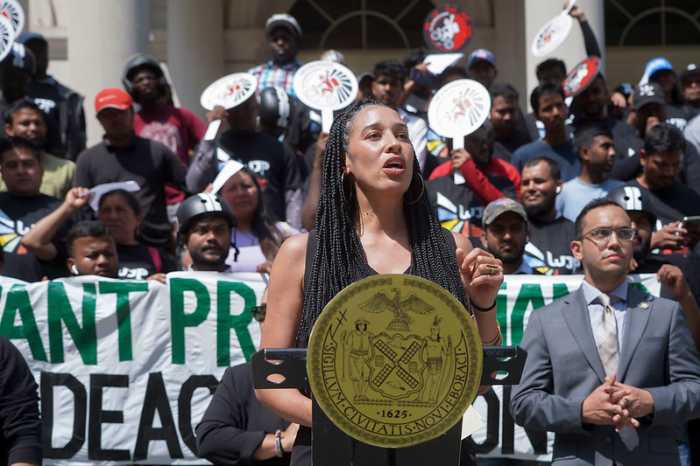
“Grocery delivery workers are also supporting families and need a living wage to put food on the table,” she continued. “As a $12 billion company, if paying delivery drivers a living wage is a step too far, it might be time for them to look into more sustainable business models.”
Instacart argues the legislation would upend its on-demand model, forcing it to introduce shift scheduling and limit how many workers can access the app. The company claims the changes would lead to fewer work opportunities, rising delivery costs, and reduced service for vulnerable customers.
“If bill 1135-A becomes law, thousands of New Yorkers will lose their ability to do delivery work. This policy has already eliminated work for thousands of restaurant delivery workers, and it’s vital that Mayor Adams understands that the proposed expansion to grocery delivery would have similarly devastating effects,” said Dudeck.
“At the same time, delivery costs on consumers and local grocers would skyrocket — threatening access for countless New Yorkers who rely on grocery delivery as a lifeline for food, medicine, and other daily essentials,” she added.
The National Supermarket Association (NSA), representing hundreds of independent grocers, is also vying for the bill’s death. In a July 8 letter to Council Speaker Adrienne Adams, the NSA said the legislation “could trigger steep fee hikes” and worsen the already “severe financial strain” local stores face.
The group warned that, unlike national chains, small grocers don’t have the ability to absorb higher costs. “Digging deeper into our margins at this time… would be the worst policy choice the Council could make,” wrote Nelson Eusebio, NSA’s director of government affairs.
Council Member Nurse also rejected the NSA’s claims, saying that some small grocers opt into Instacart to expand their sales, while others don’t use it, and some have their own delivery services.
“This bill doesn’t require grocery stores to partner with Instacart for their day-to-day operations,” she said.
“This Council has invested millions in home food delivery to mobility-impaired people, to elders, and to people with specific dietary needs. We can balance food access with workers’ rights -one shouldn’t come at the expense of the other,” Nurse added. “Instead of spending lots of money on lobbyists and TV ads lying to New Yorkers, Instacart should get to work figuring out how to stop exploiting workers and pay them minimum wage. It’s a very simple concept.”
A spokesperson for Mayor Adams did not directly address the pressure campaign being led by Instacart, only that Hizzoner is still considering the legislation.
“We are reviewing the legislation the City Council recently passed,” the spokesperson said.
The minimum pay bill was part of a broader legislative package passed July 14, which aimed to extend protections to all app-based delivery workers.
Among the measures approved was a bill sponsored by Council Member Shaun Abreu that requires third-party food and grocery delivery platforms to offer a tipping option of at least 10% on every order. Two additional bills from Abreu mandate that tipping be available before or at checkout and require delivery services to pay contracted workers within seven days of the end of each pay period.
The Council also passed legislation from Council Member Jennifer Gutiérrez aimed at strengthening delivery worker protections, including guaranteed access to bathrooms, the distribution of fire safety materials, and provisions for insulated delivery bags.
